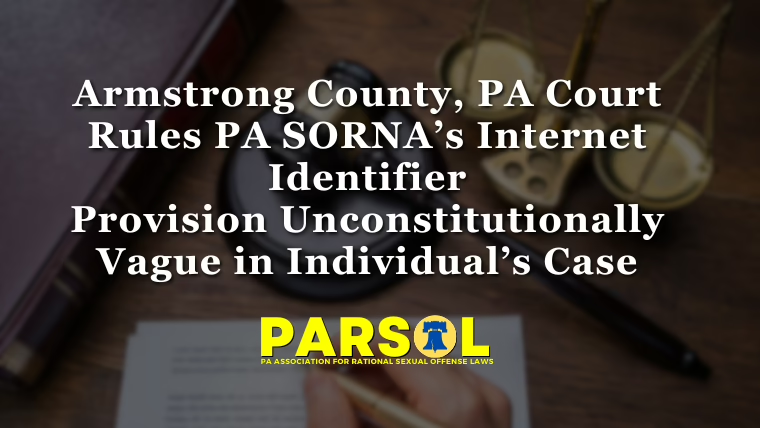This year marks the 30th anniversary of Pennsylvania’s registry. Thirty years. That’s three decades of a policy born in the “tough-on-crime” panic of the 1990s, still alive today despite overwhelming evidence that it doesn’t make communities safer. As a PFR, I know what it means to live under a system that has barely changed since its inception. At its core, the registry is still the same blunt instrument it was in 1995: a public list that assumes people with a sex offense conviction are uniquely dangerous, incapable of change, and must be tracked for years, or life.
Join us at the PA Capitol on Tues. Oct. 28th at 2 p.m.
Click here to RSVP to the Rally
But here’s the truth: decades of peer-reviewed research, government studies, and even statements from law enforcement have proven these assumptions wrong. PFRs have one of the lowest recidivism rates of any crime category. Registries do not reduce reoffending or prevent harm. Instead, they create lifelong punishment, collateral consequences, and barriers to reintegration that actually increase risk factors for harm. And yet, the registry’s foundation hasn’t budged. Lawmakers continue to expand it with longer terms, more reporting requirements, and broader definitions without asking the most basic question: is this working? If the answer were yes, we would see measurable reductions in sexual harm linked to registry use. But we haven’t.
Over time, the registry has ballooned into an unwieldy machine that harms not just registrants, but their families and communities. Employment discrimination pushes families into poverty. Public shaming fosters isolation and despair. This doesn’t make Pennsylvania safer, if anything, it makes it more fragile.
Contrast that with what we know does work: prevention rooted in education, treatment, support, and strong community ties. When individuals are given opportunities to rebuild with stable housing, employment, therapy, and acceptance, they are far less likely to cause further harm. In fact, most sexual harm is committed not by strangers on a registry, but by people in positions of trust who were never on it at all. So why, thirty years later, are we still pouring resources into a failed experiment? Fear. No politician wants to be painted as “soft” on sexual crime. But true leadership requires courage, the courage to admit when a policy doesn’t work and to replace it with one that does.
Pennsylvanians deserve better. We deserve investments in prevention, victim services, and second chances that actually reduce harm. The registry may be thirty years old, but age alone doesn’t make it wise.




